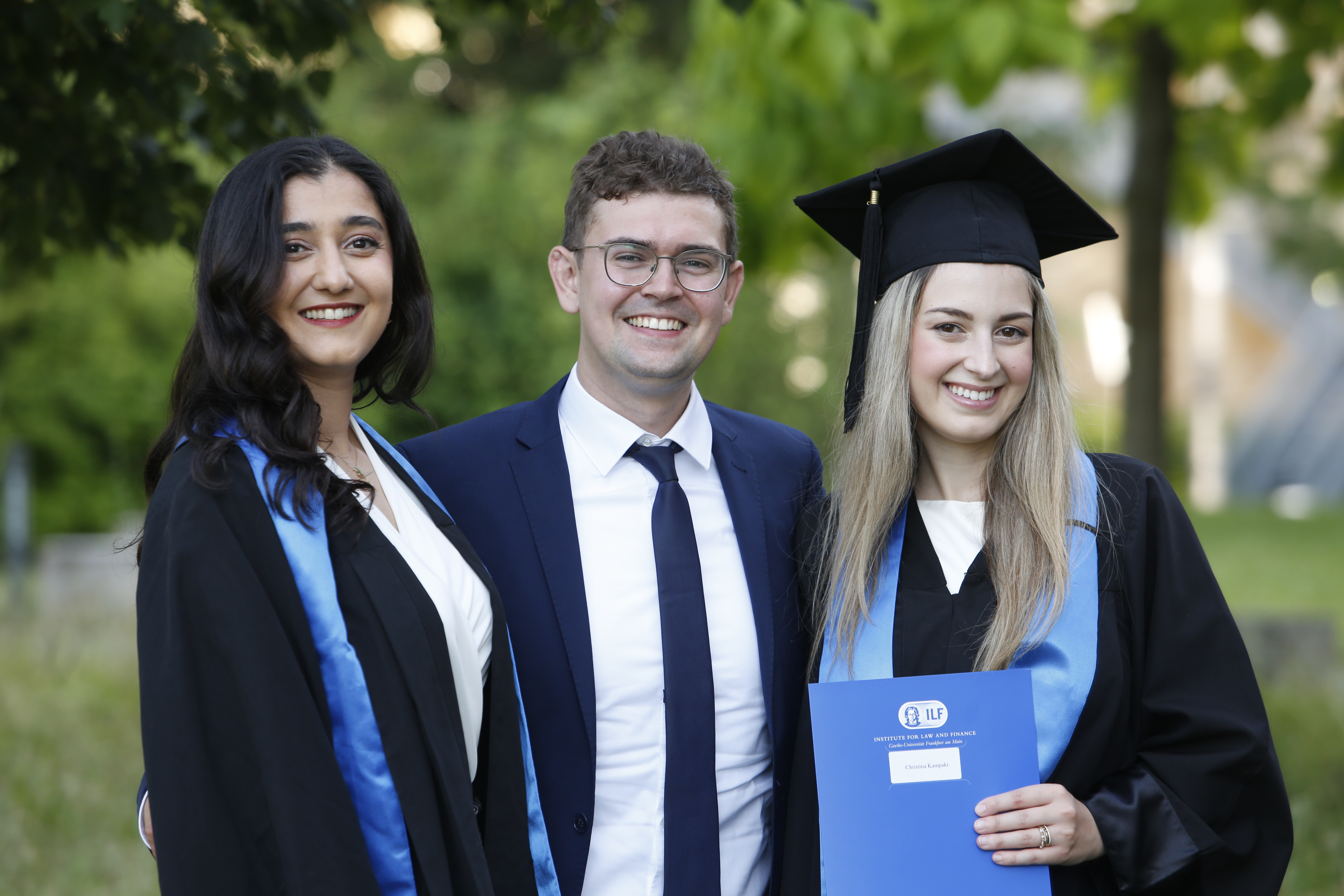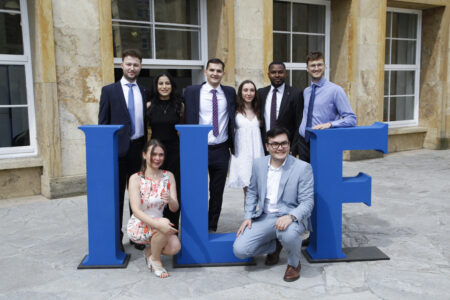Effectively navigating the post-2008 financial landscape, advising on complex international mergers, or staying ahead in the rapidly evolving fintech sector are no easy feats. However, they can be a breeze for someone whose expertise spans finance and law.
This is where an LLM Finance from Goethe University Frankfurt proves invaluable, offering a blend of theoretical and practical knowledge tailored to the demands of modern financial systems.
The programme is delivered by the university’s Institute for Law and Finance (ILF), which is well-regarded for its rigorous academic programmes. Founded in 2002, this institute operates out of the financial center of Europe, Frankfurt, which is home to the European Central Bank, the German Stock Exchange, and a host of important regulatory bodies and leading financial institutions. Indeed, it’s an advantageous location that encourages collaboration and ensures curricula remain steps ahead.

The ILF serves as a forum for members of the legal and financial industries, hosting many conferences and seminars to which students are invited. Source: ILF, Goethe University Frankfurt
For Yonathan Tison, from the Class of 2021-22, the opportunity to study in the financial nucleus of Europe was a big draw. He valued being at the centre of the continent’s financial activities, where he could observe the practical applications of theoretical knowledge in real time. “The chance to engage directly with top-tier professionals and to apply classroom learning to solve real-world challenges was a compelling reason to choose the ILF for my studies,” he says.
Yonathan set his sights on the LLM Finance specifically, which according to the LLM Guide, ranks among the world’s top 10 for Banking, Finance, and Securities Law. Its interdisciplinary approach walks students through the intricate relationship between law and finance.
It’s also just as customisable as it is comprehensive. With over 35 law and business/finance courses to choose from, students can tailor their education to match their personal interests and career goals. Regardless, everyone gains a solid foundation for their careers. For example, courses like ,Compliance Management, Law and Practice of International Capital Markets, Investment Management, Nuts & Bolts of M&A, Global Economic Environment, Law of Central Banks, and Regulation of Financial Markets and Institutions etc help learners truly grasp the financial implications of legal decisions.
All lessons are delivered in small classrooms, which is perhaps one of the best things about studying at the ILF, which admits around 50 students each year. This enables personal interactions with experts. ILF’s faculty is made up of professionals hailing from over 10 European and American countries. Together and separately, they bring valuable real-world experience to the classroom. “We were educated by outstanding lecturers who blended theory with practical insights, making classes intellectually stimulating and enriching,” says Yonathan.
Their connections play a crucial role in helping students land experiential learning opportunities, which the ILF emphasises across its programmes. LLM Finance students take on a seven to eight-week internship at top law firms, major banks, accounting and consultancy firms, the German Bundesbank, and the European Central Bank.
Giorgio Carlucci, a 2017 graduate, found this opportunity particularly beneficial. “The vast array of internships available helped me start a career in a field outside my area of expertise,” he says.

Internships are mandatory in the LLM Finance, and an established process is in place to secure suitable placements for students. Source: ILF, Goethe University Frankfurt
Giorgio pursued his internship at the European Central Bank. The exposure thoroughly prepared him for the various front office and strategic roles he held at NatWest Group, London — all of which led to his current position as Vice President of ESG Advisory (Debt & Financing Solutions).
Hands-on learning opportunities are not the only way the ILF prepares students for this level of leadership. It also highlights the importance of social engagement by hosting conferences and seminars throughout the year. These events promote an ongoing exchange of ideas among academics, regulatory bodies, and industry leaders. Such conferences and uest lectures typically cover topical issues in international business and financial markets.
Each academic calendar is also packed with networking events, graduation celebrations, guided tours of key financial landmarks like the Frankfurt Stock Exchange, and alumni roundtables. Such initiatives foster camaraderie among the ILF community, which is known for being genuinely welcoming to all.
“The ILF is made up of people who are just as nice, approachable, and friendly as they are intellectually sharp – not an easy combination these days,” says Giorgio.
Sold? Tuition fees for the LLM Finance programme are set at €23,000 for a one-year full-time programme and €27,000 for a two-year part-time option. To help lighten the financial load, the ILF provides several attractive rebates: an early bird discount of €2,500 for those who apply by 1 February 2025, additional incentives for early acceptance, and a special €3,000 reduction for EU citizens.
Learn more about the programme today.
Follow Goethe University’s Institute for Law and Finance on Facebook, Instagram, LinkedIn, X, and YouTube












